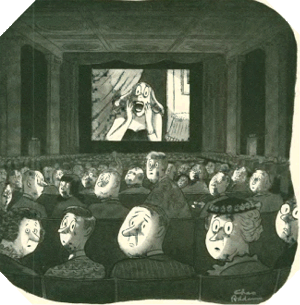 |
| "the laws of nature should be expressed in beautiful equations" |
"The large numbers hypothesis concerns certain dimensionless numbers. An example of a dimensionless number provided by nature is the ratio of the mass of the proton to the mass of the electron. There is another dimensionless number which connects Planck's constant and the electronic charge. This number is about 137, quite independent of the units. When a dimensionless number like that turns up, a physicist thinks there must be some reason for it. Why should it be, well, 137, and not 256 or something quite different. At present one cannot set up a satisfactory reason for it, but still people believe that with future developments a reason will be found. Now, there is another dimensionless number which is of importance. If you have an electron and a proton, the electric force between them is inversely proportional to the square of the distance; the gravitational force is also inversely proportional to the square of the distance; the ratio of those two forces does not depend on the distance. The ratio gives you a dimensionless number. That number is extremely large, about ten to the power thirty-nine. Of course it doesn't depend on what units you're using. It's a number provided by nature and we should expect that a theory will some day provide a reason for it.
How could you possibly expect to get an explanation for such a large number? Well, you might connect it with another large number - the age of the universe. The universe has an age, because one observes that the spiral nebulae, the most distant objects in the sky, are all receding from us with a velocity proportional to their distance, and that means that at a certain time in the past, they were all extremely close to one another. The universe started quite small or perhaps even as a mathematical point, and there was a big explosion, and these objects were shot out. The ones that were shot out fastest are the ones that have gone the farthest from us. That explains the relationship (Hubble's relationship) that the velocity of recession is proportional to the distance, and from the connection between the velocity of recession and the distance we get the age when the universe started off. It's called the big bang hypothesis.
There is a definite age when the big bang occurred. The most recent observations give it to be about eighteen billion years ago. Now, you might use some atomic unit of time instead of years, years is quite artificial, depending on our solar system. Take an atomic unit of time, express the age of the universe in this atomic unit, and you again get a number of about ten to the thirty-nine, roughly the same as the previous number. Now, you might say, this is a remarkable coincidence. But it is rather hard to believe that. One feels that there must be some connection between these very large numbers, a connection which we cannot explain at present but which we shall be able to explain in the future when we have a better knowledge both of atomic theory and of cosmology".
... Paul Dirac (1902-84), British theoretical physicist (interview excerpt, 1970)
There is a definite age when the big bang occurred. The most recent observations give it to be about eighteen billion years ago. Now, you might use some atomic unit of time instead of years, years is quite artificial, depending on our solar system. Take an atomic unit of time, express the age of the universe in this atomic unit, and you again get a number of about ten to the thirty-nine, roughly the same as the previous number. Now, you might say, this is a remarkable coincidence. But it is rather hard to believe that. One feels that there must be some connection between these very large numbers, a connection which we cannot explain at present but which we shall be able to explain in the future when we have a better knowledge both of atomic theory and of cosmology".
... Paul Dirac (1902-84), British theoretical physicist (interview excerpt, 1970)









